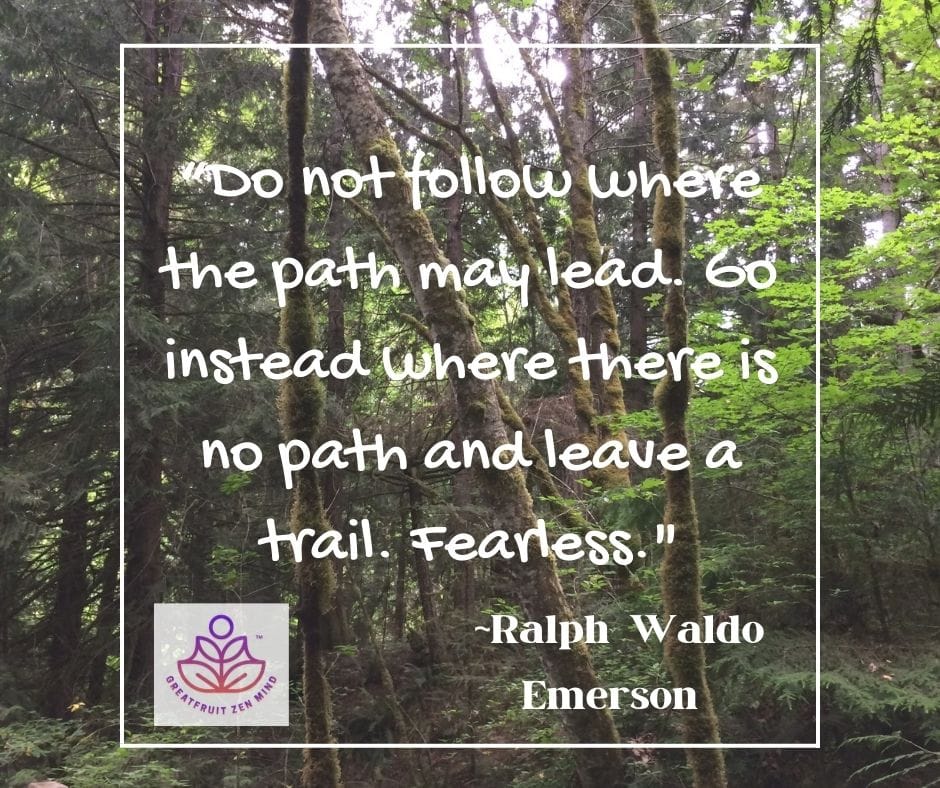Read time 4 minutes. Fearless Mind is a stand alone article in our Who Am I series.
Early in his book China Root, David Hinton suggests that Zen, “…demands a wild and fearless mind.” Just hearing these words is enough to stir something within us—an invitation to step beyond control and embrace the unknown.
Cultivating a wild and fearless mind
In recent lessons, we’ve looked closely at the ego and its endless attempt to control and condition the world. The trouble is not simply that such efforts are exhausting—it’s that they are inherently limited. When we rely on the ego, we are confined to its narrow, conditioned creativity.
To cultivate a wild and fearless mind, we must release this need for control. The ego only works with what it already knows. Beyond it lies the unbound, spontaneous wisdom of Tao. That is the advantage of uncertainty: infinite possibility.
Fearlessness also means letting go of perfection. The world, as the ego sees it, will always appear fractured and incomplete. But every imperfection is part of a larger whole—the perfection of Tao itself. To see this is to loosen our grip and step into freedom.
A fearless mind emulates tao
Here again we remember Tao’s way: not rigid, not fixed, but fluid like water. The river winds around obstacles, wearing away stone not with force but with persistence. Hinton describes Tao as an “intelligence that infuses all of existence, and of which human thought is but one manifestation.”
A Zen mind that emulates Tao is flexible, spontaneous, and alive. It sees beyond the superficial and into life’s raw immediacy. Hinton warns us not to treat practice as a separate, tranquil refuge from change. To do so is to resist Tao itself. True practice unites us with the world’s shifting nature, until practice begins to dissolve itself.
Wu-Wei: Effortless action
Central to this fearless mind is the ancient concept of wu-wei—effortless action. Hinton describes it as acting without the “identity-center self,” moving with an empty, wild mind. In wu-wei, “our movements range free because we move at the hinge of Tao.”
Here we glimpse the merging of concepts: a mind free of ego, moving as Tao itself, alive in the pure is-ness of the present moment. Wu-wei is not passivity—it is action as the cosmos moving through us with selfless spontaneity.
Discovering your own path
Fearless mind in Zen is not the absence of fear. It is the courage to face it directly, to live with uncertainty and openness. It means rejecting conformity when the world demands predictability. As Krishnamurti reminds us: “It is no measure of health to be well adjusted to a profoundly sick society.”
The question becomes: What are the infinite possibilities of this moment? Fearless mind dares to leave the beaten path. It discovers the boundless potential of a boundless identity.
The poetry of Zen
As we move forward, we turn to the poetry of Zen. Poetry does not restrict—it allows. Hinton’s writing embodies this, holding language loosely in one hand while reaching for clarity with the other.
When he writes about presence, for instance, he does not stop at the word. Presence becomes the “origin-place” where presence and absence, the transcendent and the ordinary, meet as one.
A recent article from Stonewater Zen explores Hinton’s work in this light, showing how his approach circles back to familiar themes: presence, the insufficiency of language, wu-wei, and the freedom of letting go.
“We are being written”
The article suggests: “We are not authors—we are being written and erased in ways over which we have very little control. All we can do is let go.”
This echoes the heart of Zen practice. The annihilation of the self is not destruction but recognition—we are not separate from the flow. In rare moments of clarity, we realize we are the process itself: the cosmos alone with itself.
And so, fearless mind is not something we construct. It is what remains when we surrender the illusion of authorship and allow Tao to write through us.
–

Need a sticker that never stops motivating? We’ve got that. Shop around.
🌀 From the GZM Archives – Polished, Preserved, Still Relevant


Leave a Reply